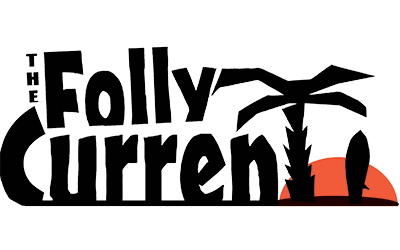Lawsuit against Folly Beach claims enforcing cap on short-term rentals is illegal, despite future vote results
By Jenny Peterson | Current Staff Writer
A decision by residents at the voting booth on whether to cap short-term rentals on Folly Beach to 800 total on non-owner-occupied properties is scheduled for Feb. 7, but a recent lawsuit filed against the city claims that if residents vote to establish a cap, it would be illegal for the city to enforce it.
A Zoom hearing for the lawsuit was scheduled for Friday, Jan. 27, according to Joseph Wilson, with Wilson Law Firm, the Folly Beach city attorney. However, the plaintiff’s attorney asked to cancel the hearing and there is not a rescheduled date, Wilson said.
The lawsuit claims that capping short-term rentals is a zoning issue, not a licensing issue, and therefore not applicable for a referendum vote. It states the city is not legally allowed to enforce or implement any changes to the number of short-term rental licenses.
The lawsuit was filed by Folly East Indian Co. LLC, a real estate development company owned by Richard Brendel and Michael Riffert, who operate five short-term rentals with two more currently being built, according to the lawsuit.
The lawsuit references the court case I’On LLC vs. Town of Mt. Pleasant as an example of the South Carolina Supreme Court declaring that zoning issues “may not be enacted by the…referendum process.”
The lawsuit also calls a current moratorium by the city on obtaining short-term rental licenses “illegal and unconstitutional” and asks that the moratorium be rescinded immediately.
Wilson maintains that the issue to cap short-term rentals is a licensing issue—not a zoning issue—and therefore legal to be determined by a referendum process.
“I don’t think their position is correct. This petition (and vote) seeks to amend our business license statute,” Wilson said. “There’s a fight over whether this is a zoning ordinance or a business license issue; what we’re dealing with today is not a zoning ordinance.”
He adds, “I think this referendum (vote) is legal. It doesn’t conflict with the ruling with I’on and we are doing our best to make sure that citizens and residents get to vote.”
Bijan K. Ghom, an attorney with Saxton & Stump, which filed the lawsuit on behalf of East Indian LLC, emailed a statement about the lawsuit.
“As our pleadings demonstrate, we think this is an illegal vote in violation of the clear South Carolina law. We look forward to being heard,” Ghom said.














